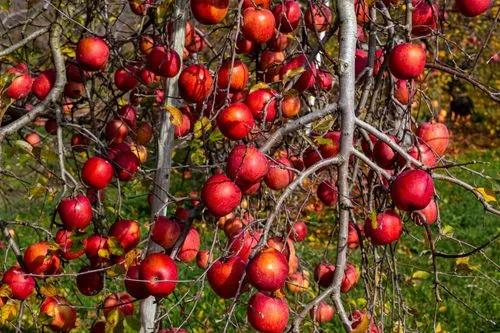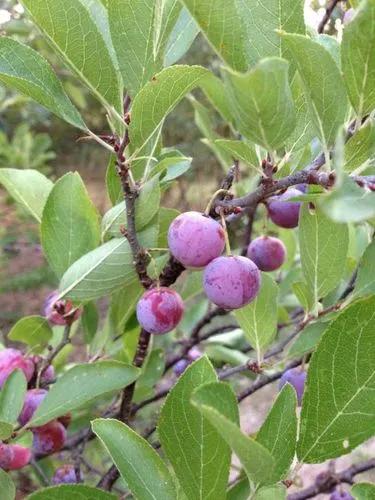Rubus fruticosus 'Triple Crown' is a semi-erect, self-fruitful, thornless shrub with clusters of pinkish-white, rose-like flowers which give way to a heavy crop of large, glossy black, juicy blackberries over a harvest season lasting 30 days in mid summer. The berries are firm and excellent for fresh eating, jams, jellies, and pies. Free-standing, its strong canes can support several pounds of fruit without trellising.
Triple Crown Thornless Blackberry Care
Rubus X 'triple Crown'



How to Care for the Plant

Water

Blackberries need moderate amounts of water, around 1 inch per week provided either by rainfall or from ground-level irrigation. Blackberries do not fare well in wet soils.

Pruning

Blackberry roots are perennial but the canes are biennial. This means that second-year canes that have produced their fruit need to be trimmed away after harvesting. For an established shrub, new canes that haven't yet fruited should be tip-pruned to about 3 feet in summer. This will cause the new canes to branch out, maximizing the fruit produced. Once these canes produce fruit, they should be removed to the ground immediately after the fruit harvest.

Fertilizer

Fertilize your blackberries in the spring when plants are emerging from dormancy, using a balanced 10-10-10 formula. Fertilize plants again in the fall with an application of manure and compost, which will also suppress weeds and improve soil tilth.

Sunlight

Sites with full sun are best for productive blackberry bushes. Some afternoon shade is tolerated, especially in areas with hot summers.

Soil

Careful site selection will ensure a long life for your blackberries, which usually live for about a decade with proper care. The ideal soil is slightly acidic with good drainage; these plants do not do well in clay soil. An elevated site or raised beds will not only help drainage but will also prevent late spring frosts from damaging flower buds. Remove all weeds that might draw nutrients or water away from your blackberries, as their shallow roots are susceptible to this competition.

Temperature

Blackberries require a period of cold dormancy to germinate, but because of their shallow root systems, they don't do well in areas where temperatures go below zero degrees routinely. Zones 5 to 8 provide the best environment for blackberries. Cold winter temperatures combined with wet spring soils may lead to plant death. The reverse environment of hot, dry winds is also unfavorable for blackberry growing and may result in stunted, seedy fruits.

Container

When growing blackberries in containers, choose a compact cultivar like Baby Cakes that does not need pruning. Choose large containers that hold at least five gallons of soil to prevent drying out.

Popularity

336 people already have this plant 28 people have added this plant to their wishlists
Discover more plants with the list below
Popular articles






